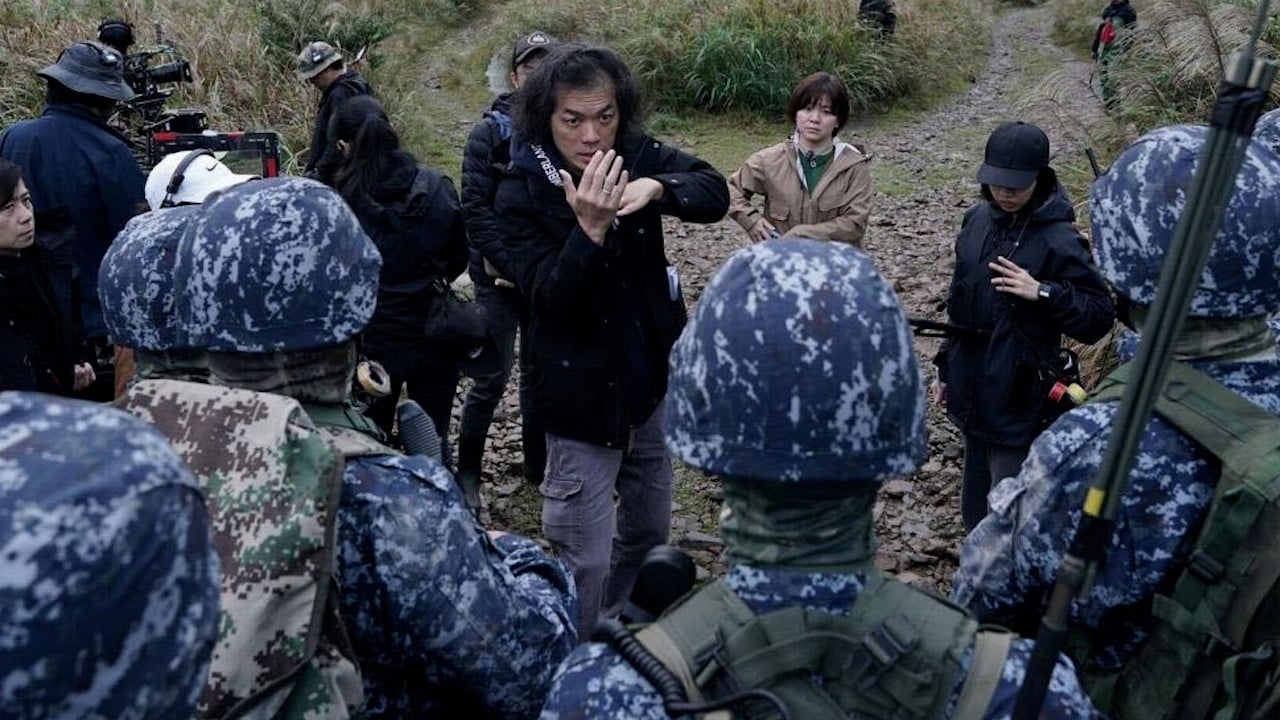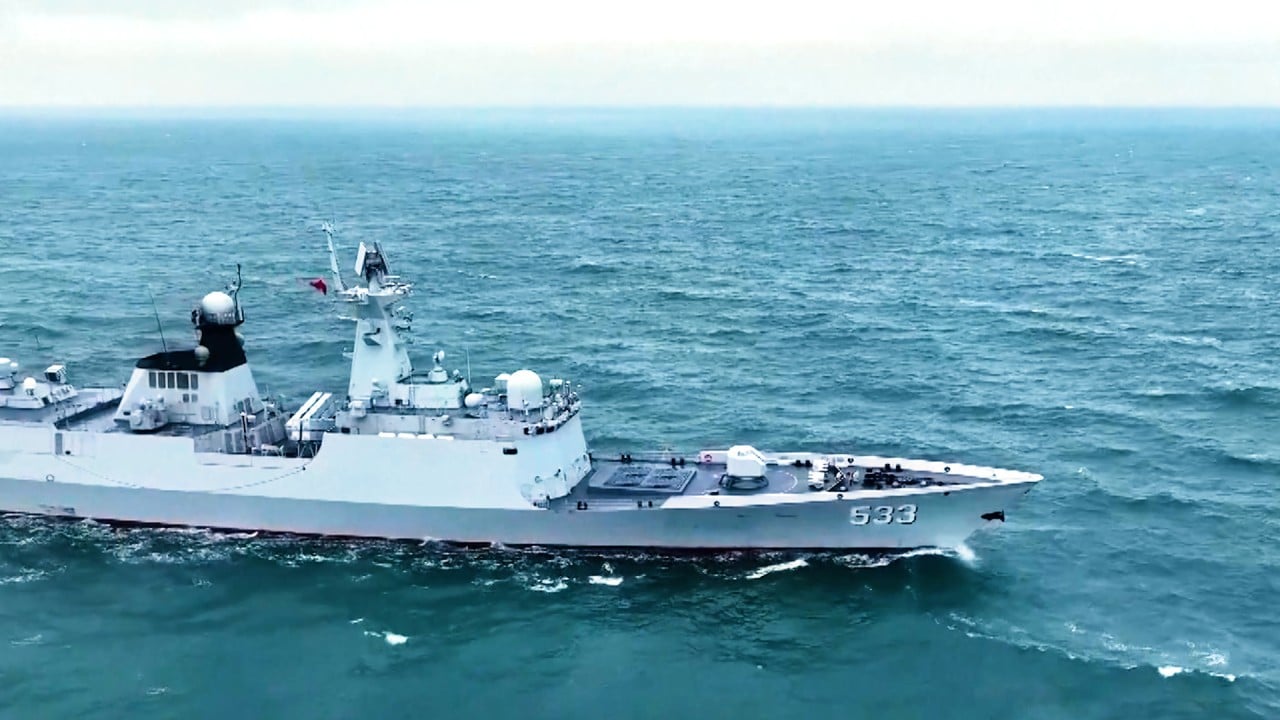Since the deal was struck, there have been no reports of mainland coastguard vessels in the area, nor have any Taiwanese vessels been boarded for inspection, according to the island’s coastguard administration.
Taiwan’s Mainland Affairs Council hailed the resolution of the incident as a positive approach to reducing cross-strait tensions, suggesting that both sides could learn from this experience and avoid similar incidents through communication and dialogue.
The deaths of the fishermen near the Taiwan-controlled island of Quemoy – also known as Kinmen – on February 14 set off a barrage of accusations from both sides, as well as intensified mainland coastguard patrols in the Taiwan Strait.
On February 19, one of these patrols briefly boarded and inspected a Taiwanese cruise ship off Quemoy.
The following month, a 25-year-old soldier from Quemoy was detained after his boat drifted towards the mainland in foggy weather during a fishing trip with a civilian friend.
In July, the mainland coastguard detained a Taiwanese fishing boat and its crew in waters controlled by Beijing, accusing them of “violating the summer fishing moratorium by using small-hole trawl nets to catch fish”.
There were also reports of multiple stand-offs between the two coastguards in the waters off Quemoy and some encounters near Matsu, another Taiwanese defence outpost.
Shortly after the deal was struck, the mainland also returned the soldier and fishing crew to Taiwan.
Cross-strait relations – never cordial since the independence-leaning Democratic Progressive Party came to power in 2016 – have deteriorated further since the party’s William Lai Ching-te took office on May 20.
Lai’s assertion – that Taiwan and the mainland “are not subordinate to each other” – was deemed unacceptable by Beijing, which regards the island as part of its territory that will eventually be brought under its control, by force if necessary.
Most countries, including Taipei’s main international backer the US, do not recognise Taiwan as independent, but Washington opposes any attempt to take control by force and is committed to supplying weapons for the island’s defence.
Beijing – which has labelled Lai an “obstinate separatist” who would bring war to the Taiwan Strait – conducted two days of large-scale exercises surrounding the island after his inauguration.
Military commentator Lu De-yun, a former Taiwanese defence ministry press secretary, pointed out that the frequency of PLA warplane and drone flights, as well as naval ship deployments, continued to rise around Taiwan.
“The resolution of the dispute in Quemoy is certainly a good thing, but it is unrelated to the situation in the Taiwan Strait as the Chinese communists have continued to ramp up military pressure on us,” he said.
The Taiwanese defence ministry has reported an upsurge not only in warplanes and warships but also in drones surrounding the island since Lai won the election in January.
On Tuesday, the mainland Chinese research ship Zhang Jian was warned off by the Taiwanese coastguard after it was reported to have come within 24 nautical miles (44.5km) of Taiwan’s northeastern Yilan county.
The incident came just a month after another mainland research ship, the Jia Geng, sailed into the same area on July 7.
Taiwanese security chief Tsai Ming-yen suggested Beijing was possibly attempting to launch a “grey zone” of non-military operations to pressure Taipei, as well as collecting hydrological data.
On the same day the Zhang Jian was spotted, the Taiwanese defence ministry reported that a PLA drone flew into the island’s northern air defence identification zone before transiting over the waters off the east coast.
The report was confirmed by Japan, which recorded the drone flying over the waters south of Yonaguni, the westernmost Japanese island.
Chieh Chung, secretary general of Taipei think tank the Association of Strategic Foresight, said it remains to be seen whether the mainland coastguard will continue its patrols near Taiwan, including the waters around Quemoy and Matsu.
According to Chieh, the enhanced patrols are a bid by Beijing to “legalise and normalise their actions in those waters while denying our claims over them”.
Beijing would not stop its pressure on Taiwan just because a maritime dispute has been resolved, he added.
“Its military threats against Taiwan have become stronger since January. In the first half of August alone, the Chinese communists have already conducted three joint combat-readiness patrols around Taiwan.”
Chieh said this level of activity compared wih an average of three times a month since Lai’s election to the Taiwanese leadership.
“Unlike live-fire drills, these practices are often held without prior warning with the aim of familiarising the communist forces targeting Taiwan with their tactical positions during wartime,” he said.
According to Chieh, the PLA exercises appear to be specifically focused on training for operations against the island and are intended to stop Lai from pushing an independence agenda.
“But Beijing still encourages civilian exchanges between the two sides, hoping to win over more Taiwanese people through its charm offensive,” he said, adding that this has remained its two-pronged approach when dealing with the island.
Huang Huei-hua, head of research at the Taiwan International Strategic Study Society think tank in Taipei, said that Beijing’s policy towards the island is based on two principles.
They are to stop Taiwanese independence forces and prevent separatists on the island from gaining external support, such as military and diplomatic backing from the United States and its allies, she said.
“As long as China believes that one of these principles has been violated, it will raise the stakes and respond severely, including staging various forms of large-scale and successive military exercises targeting Taiwan.”







:quality(85):upscale()/2025/02/12/709/n/43463692/affdf68367acc608c50d79.20958537_.png)

